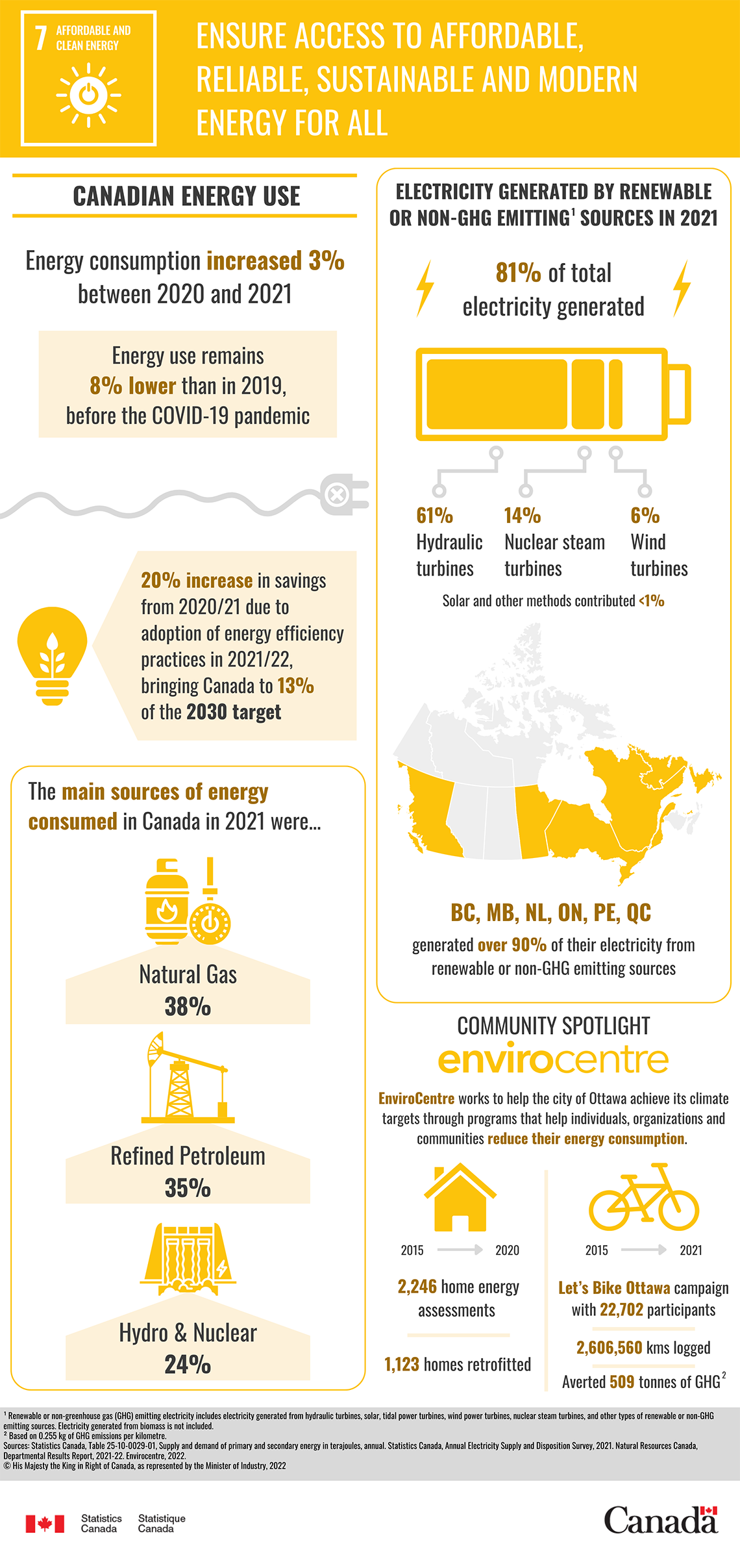Agenda 2030 Sustainable Development Goals Report, 2022
Goal 7, Affordable and Clean Energy

Description: Sustainable Development Goals: Goal 7, Affordable and Clean Energy
Ensure access to affordable, reliable, sustainable, and modern energy for all
Canadian energy use
Energy consumption increased 3% between 2020 and 2021. Energy use remains 8% lower than in 2019, before the COVID-19 pandemic.
There was a 20% increase in savings from 2020/21 due to adoption of energy efficiency practices in 2021/22, bringing Canada to 13% of the 2030 target.
| Source | Percentage of energy consumption |
|---|---|
| Natural gas | 38 |
| Refined petroleum | 35 |
| Hydro & nuclear | 24 |
Electricity generated by renewable or non-GHG emittingNote 1 sources in 2021
Electricity generated by renewable or non-GHG emitting sources was 81% of total electricity generated in 2021.
| Source | Percentage of all electricity generated |
|---|---|
| Hydraulic turbines | 60.6 |
| Nuclear steam turbine | 14.0 |
| Wind turbines | 5.5 |
Solar and other methods of renewable electricity generation contributed less than 1% of electricity generated in 2021.
British Columbia, Manitoba, Newfoundland and Labrador, Ontario, Prince Edward Island, and Quebec are generating over 90% of their electricity from renewable or non-GHG emitting sources.
Community spotlight: EnviroCentre
EnviroCentre works to help the city of Ottawa achieve its climate targets through programs that help individuals, organizations and communities reduce their energy consumption.
Between 2015 and 2020 EnviroCentre has:
- Conducted 2,246 home energy assessments
- Retrofitted 1,123 homes
From 2015 to 2021, EnviroCentre’s annual Let’s Bike Ottawa campaign has had:
- 22,702 participants
- 2,606,560 kms logged
- Averted 509 tonnes of GHGNote 2
Sources: Statistics Canada, Table 25-10-0029-01, Supply and demand of primary and secondary energy in terajoules, annual. Statistics Canada, Annual Electricity Supply and Disposition Survey, 2019/2020. Natural Resources Canada, Departmental Results Report, 2021-22. Envirocentre, 2022.
- Date modified: